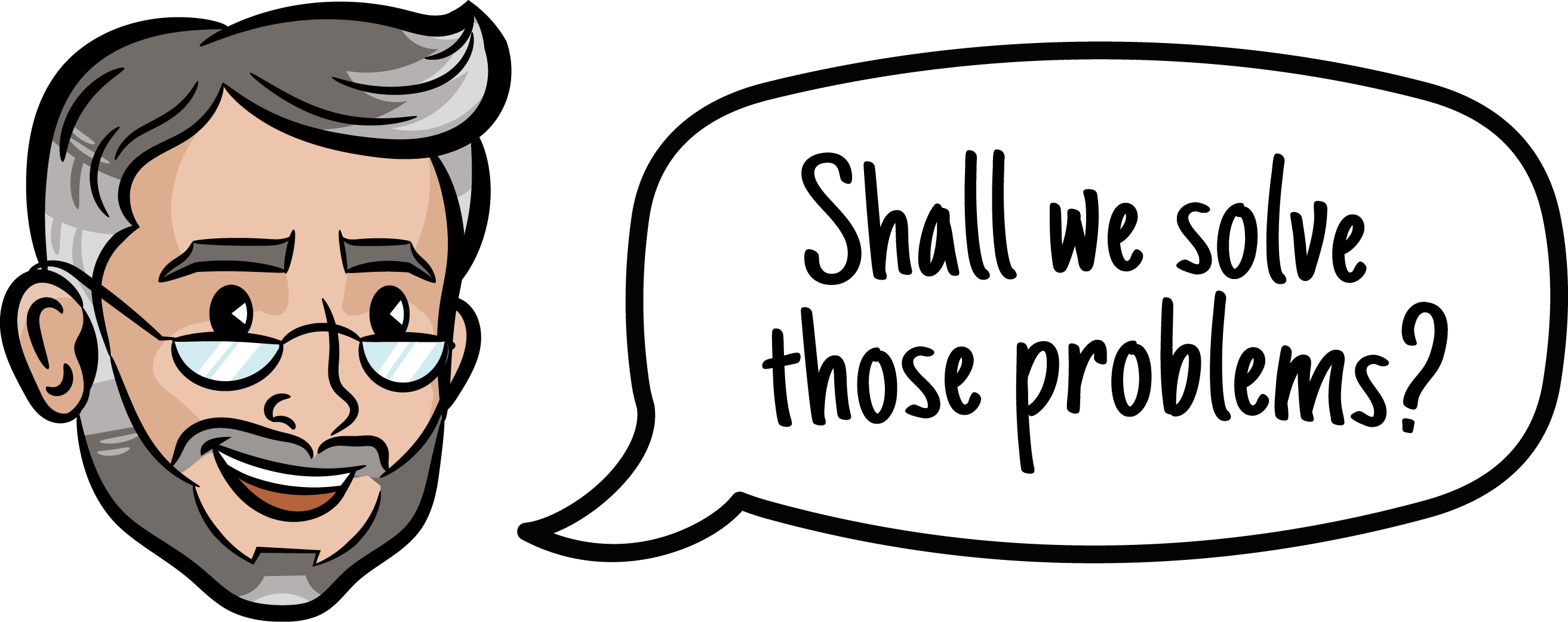Asking the right CMO interview questions is critical to ensure you make a good hire that will help you build the culture you desire and delight your customers.
Your Chief Marketing Officer will be responsible for the look and feel of your company.
For companies that sell complex products, the marketing team is tasked with converting strangers into marketing-qualified leads, which can then be handed off to your sales team, and you have to keep them happy.
Very few companies operate within a truly blue ocean, so they have to understand what competitors are up to as well.
Chief Marketing Officers are also very well paid, so when you’re seeking one, you’re likely to get lots of applicants.
All of that said, here are three CMO interview questions you can use to quickly weed out the folks that aren’t who you need.

CMO Interview Question 1: What Are Your Marketing Superpowers?
When to Ask It:
Imagine you have a job posting for a CMO out there. You’re getting resumes and cover letters. You should be silently archiving or sending templated rejection letters to a lot of these.
If you didn’t know that a lot of Instagram influencers think they’re qualified to be a CMO, now you do.
Your questions to ask a CMO should start with broad questions that will help you narrow the applicant field significantly in the beginning.
For those that look interesting, send this question in a response note so that the candidate has to answer in writing.

Example:
[Candidate Name],
We greatly appreciate your interest in our CMO position. I had a couple of preliminary questions for you:
- What are your marketing superpowers?
- [something else]
I look forward to hearing from you.
[Your Name] | [Your Title]
Failing Responses:
No Response within 2 Business Days – These folks are kind enough to save you lots of time:
- They may have been auto-applying through Indeed or similar.
- They may have been casually applying and come to the realization they aren’t ready to answer real questions in a thorough interview process.
- They may have found something else.
Whatever it is, they applied for your post and then couldn’t be bothered to follow up. Silently thank these people and archive their applications.
Bad Grammar/Spelling/Word Choice – Resumes are often proofread by third parties, so your candidates may be masking the fact that they are actually pretty poor communicators in writing.
As the most senior person required to sign off on everything that goes in front of the public, you can’t afford to carry someone who won’t be able to catch and correct poorly written copy that could ruin your conversion rate optimization. You may also spot marketing jargon being used incorrectly in these answers. You can politely decline these folks and wish them well in their job hunt.
Single Answer – Notice the question said “superpowers” (plural).
Your CMO must be an exceptional critical reader. If they missed the nuance in the question (in a set of two questions), they’re not your CMO.
If they only have one superpower, they’re also not your CMO. Your C-suite leaders need multiple superpowers.
You can let these folks down easy as well.
Generic, Short Answers – Marketing of all types is an opportunity to differentiate and frame something (or someone) in its/their best light.
Answers like: “Communication & Strategy” or “Analytics & Leadership” are not what you want.
Your future CMO should take the opportunity to differentiate their application with a thorough answer, and ideally, submit an answer that meets the “memorable” test.
Good marketers will understand they’re in competition for the job. You don’t want someone who fails to realize their application is likely one of tens or even hundreds.
Creative Director Skillset – CMO’s are not creative directors. Their work is primarily strategic and analytic. If you get answers such as “content creation,” “graphic design,” or creating other visual concepts, you probably have someone without the right personality.
Follow-Up Questions – If you get a response such as: “What do you mean by superpowers?” you either have someone with “analysis paralysis” or an underdeveloped imagination. See our marketing jargon encyclopedia for other recognized diagnoses.
You don’t have time for a CMO who can’t interpret and make a very strong educated guess in a reasonable amount of time.
Passing Answers:
You’ll generally want to let people through if their answer to the superpower question meets the following criteria:
- At least two superpowers are noted
- Each superpower is supported by at least a couple of sentences of explanation
- The answers are returned within two business days (preferably one)
- The superpowers are relevant to the job: analytics, leadership, career development, messaging, synthesizing, translating complex concepts, etc.
- The answer uses segues and is sandwiched with business-appropriate communication. “Thank you for the opportunity to answer…” or “That’s a great question…” etc.
CMO Interview Question 2: What Company In Our Space Do You Think Does a Particularly Great Job with Marketing and Why?
When to Ask It:
So you received a pile of applications for your open CMO role. You cut at least 50% of them on the first review because their resumes were either jibberish or made it clear they weren’t qualified.
Then you used a clever email-based interview screening question to cut the pile down by at least another 50%. For those counting at home, that means you’re down to 25% of your applicants, hopefully even less.
Now you’re at the lightning-round stage interview. For those that have satisfactory superpowers (or are sociopathic enough to lie convincingly about having them), you want to invite them to a 30-minute phone call.

Professor’s Note:
Make this a true phone call if possible. The calendar invite should say “[Interviewer] to Call [Interviewee] at [Interviewee Phone #].
Why? Because it’s only 30 minutes, and you can almost guarantee they historically used a different video calling system than you do, which means you’ll waste 5-10 minutes waiting for audio to work.
Zoom, Google Meet, Microsoft Teams. Yep, some people are even coming from places that still use Skype, WebEx, or GoToMeeting.
Preface this call with an invite that says you want to spend 30 minutes together, split 50%/50% so you can both ask a few questions.
Softball questions to ask a CMO in this round include:
- What interested you in this position?
- What makes you think you’re a good fit?
These types of questions are expected and your candidate will have boilerplate answers prepared. Hopefully, you’ll get past any nervousness with these questions.

Professor’s Note:
On this call, some nervousness is good. It usually means they actually care about the role.
If the nervousness is crippling to the point that the conversation doesn’t flow, you probably have to pass, however.
Now it’s time to throw your curveball. Ideally, you haven’t been leading the conversation in the direction of competitors who do great marketing.
If it feels awkward, you can preface this question, so it would be: “Moving in another direction…What company in our space do you think does a particularly great job with marketing and why?”
When I interviewed 100s of CMOs for positions with a fintech SaaS company that partnered with banks and credit unions, we needed to find experts in bank marketing strategy that really had their eye on what banks were good at selling what products. Because a CMO needs to spy on the competition and adopt what the market cares about.
Failing Responses:
I’ll Have to Get Back to You On That – Your CMO needs to be able to think on their feet. They should have at least some idea of what space your company occupies and who the strongest competitors are. If they don’t, are they actually qualified?
The Big Boy without the “Why” – At least this candidate was able to come up with a name. In the absence of a comment on what the market-share leader does well marketing-wise, your candidate is basically equating good marketing with massive spend or being around forever.
You want a Chief Marketing Officer who is cunning and constantly studying other companies to see if he/she can spot patterns and steal tactics.
A Company That Sucks at Marketing – Let’s face it. Some companies are terrible at marketing and you know it. If your candidate chooses one of them, you probably have such philosophical differences that you should pass.
The great news is that if you get any of these answers, you only have to round out your 30 minutes, and if you want to truncate it, pass the mic early!
Barely Passing:
The B-School Case Study – Certain companies are so well-known for how they do marketing that naming one is a bit of a cop-out.
When I’ve interviewed Fintech CMOs, I generally split the question into “publicly-traded technology companies” and then will ask a very narrow question about some specific value proposition in the second question: “Banks that do small business marketing well” or similar.
If a candidate answers that Apple does marketing well and references “1984,” you shouldn’t feel bad about vomiting just a little bit in your mouth.
Passing Answers:
The answers you are looking for on this question meet the following criteria:
- The named company has some commonalities with yours
- The description of how the named company does marketing well is specific:
- Came up with a clever way to capture a new audience
- Developed a new value proposition
- Messaging is great at cutting through the clutter
- Product has a viral component that “sells itself”
- Other specific observations that don’t apply to everyone in the space
CMO Interview Question 3: What Questions Do You Have?
When to Ask It:
Our lightning-round candidate will have been asked 15 minutes of questions. At which point, you thank them for those answers and “hand them the mic.”
You want to say something to be sure they feel like any subject is on the table. Here’s how to do it:
Well, perfect. I really appreciate your answering my rapid-fire questions. Now I want to be sure you get your questions answered about our company, the role, or anything that will help you decide whether or not this position might be a good fit for you. So please feel free to bring up whatever you want.
In other words, your CMO should interview you. If they discover the job isn’t a fit, that’s a great outcome as well. The last thing you want is someone who accepts and bails immediately.
Failing Responses:
Can’t Fill 15 Minutes – Keep in mind you set the call up as spending 15 minutes with your CMO interviewing you about the company, role, etc. You might expect to cover 3-5 questions in that time span.
If they don’t have 3-5 questions for you, you’ve got someone who made it this far without sincere interest.
Asks Questions That Are Obvious on Your Website – All great marketing starts with thorough research. Your website is the most obvious place to look. Ideally, your candidate will have checked your social media as well.
If you can tell that they don’t understand what the company does at least at a 10,000-foot level, you probably need to pass.
Asks Questions in a Condescending or Argumentative Manner – CMOs have to lead their team and get buy-in from other C-suite members, possibly investors, and most importantly, paying customers.
If they can’t articulate disagreement with the current approach or offering in a constructive way, they’ll constantly sew discord by trampling on other people’s egos. You want a teacher, not a dictator.
Passing Responses (Great Questions):
Variations of these questions are all good signs that you have someone who can be moved forward to the next round of interviews:
- What is happening within the company today that should change post-hiring for this CMO role?
- What are the company’s biggest marketing challenges?
- Who sits on the marketing team today and what are their specialties?
- Who does the company view to be its biggest or most threatening competitors?
- What does success look like for this role?
- What is the current marketing budget (for ad spend)?
- What’s currently working?
- What’s currently not working?
- Who does this position report to? What is their leadership style?
- What would the company like to see accomplished marketing-wise in the next month, quarter, and year?
- What is the culture of the company like?
- (If they find past marketing leaders at the company on LinkedIn): What didn’t work for/about [past marketing leader]?
Bonus Points: A Highly Developed Sense of Humor
You’ve spent at most 30 minutes of 1-to-1 time with this person. If they’ve navigated your questions in what is typically a high-intensity, make-or-break scenario AND managed to get some laughs along the way, you’ve got a very strong candidate on your hands.
Move their application to the top of the pile.
Do You Have Experience Interviewing CMOs?
Drop your questions in the blog comments here or on the LinkedIn comments. It’s always great to share learnings from the SFP community.
And stop by again soon. We’ll talk about later-round CMO interview questions in the near future.
Not Ready for a Full-Time CMO Yet?
A CMO only makes sense when a company has a certain amount of mass. If you’re not there yet, consider our fractional CMO services. You get the leadership and team development you need without the cost of a full-time hire.
For Further Reading: How to Use Hubspot for Startups | What Is This “RevOps” I Keep Hearing About with Mat 0’Connor? | How Certain WordPress Agencies Turn a Content Management System into a Black Box and What to Do About It | How a Broken Sales Funnel Gets Misdiagnosed…A Real World Example | How Does 3D Proofreading Help Startups?


